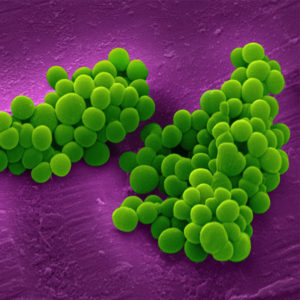Antimicrobial Resistance in Bacterial Pathogens (Africa)(Virtual)
26 September–1 October 2021
Virtual Course
Learn antimicrobial susceptibility testing techniques and how whole-genome sequencing and bioinformatics can be used to understand AMR
Summary
PLEASE NOTE: We hope to resume our face-to-face courses in 2021. However, should the status of the pandemic not allow us to do this safely, the course may switch to a virtual format.
In collaboration with the Kenya Medical Research Institute (KEMRI), Nairobi, Kenya, we are pleased to announce the 2020 overseas course in Antimicrobial Resistance in Bacterial Pathogens.
Antimicrobial resistance (AMR) is a global public health emergency and threatens the safe delivery of modern medical care. Global projections of the negative impact of AMR predict the loss of nearly 10 million lives and a cumulative loss of global production up to 100 trillion US dollars by 2050. AMR requires immediate, concerted, international, collaborative action to monitor its prevalence and spread throughout the world. The importance of this has been recognised both by the United Nations and by the World Health Organisation; the latter has published a list of priority pathogens and a global strategy for AMR surveillance.
The challenges of controlling AMR in low- and middle-income countries (LMICs) may be considerable for several reasons. Firstly, antibiotics may be available for human and animal use without a prescription, resulting in unregulated use. Secondly, accurate data on antimicrobial prescription or consumption may not be readily available. Thirdly, there may be limited knowledge about the appropriate use of antibiotics and a lack of antimicrobial policies or stewardship programmes. Finally, there may be limitations in healthcare facilities and laboratory capacity for the detection and management of AMR.
This course aims to address some of these challenges by improving the knowledge and skills of individuals interested in antimicrobial resistance in bacterial pathogens in Africa. It will provide a basic introduction to AMR, and practical laboratory training in the laboratory aspects of AMR detection (phenotypic and molecular testing) in bacteria. It will also provide theoretical training on the evolution and spread of AMR and explore the use of whole-genome sequencing and bioinformatics analysis and methods for AMR surveillance and control. The content will be globally relevant but tailored to an African setting, and therefore potentially transferable to other LMIC regions. It will result in training and capacity building of the participants who will be able to transfer their knowledge and skills to their home institutions and countries. The course will provide an opportunity for participants to network and potentially build a regional AMR network to support long-term partnerships and collaborations.
Target audience
This week-long course is free to attend and open to applicants based in Africa who are actively engaged in, or soon to commence, research, clinical practice, provision of clinical services, or policy development related to AMR in bacteria. Applicants should be Ph.D. students, clinical trainees or specialists in medical microbiology, post-doctoral scientists, senior technicians, or research assistants with a Master’s degree.
Programme
The course will consist of lectures, laboratory sessions and computational practicals. Participants will learn internationally applied standard methods for the detection of antimicrobial resistance in bacteria. Participants will also complete computational practicals covering the investigation, tracking and understanding of AMR in bacteria.
Specifically, the course will cover:
- Historical and epidemiological aspects of antimicrobial resistance (AMR)
- Clinical importance of AMR
- Causes and biological mechanisms of resistance in Gram-positive and Gram-negative bacteria
- Antimicrobial susceptibility testing (AST) methods, e.g. disc testing, automated systems, minimum inhibitory concentration (MIC), breakpoints and reporting
- Molecular methods for detection of AMR
- Internal quality control (QC) and external quality assurance (QA) for AST
- AMR pathogens in Africa
- AMR in veterinary medicine
- Antibiotic policies and stewardship
- AMR surveillance methods and study design
- Tackling AMR using a One Health Approach
- Introduction to genomic surveillance of AMR
- Local AMR epidemiology – investigating transmission of clones and AMR
- Analysis of resistance in genomes
Learning outcomes
After attending this course, participants will be able to
- Recognise the significance and challenges of AMR spread and evolution in low and middle-income countries.
- Carry out standard laboratory methods for antimicrobial susceptibility testing (e.g., disk testing and MIC determination)
- Apply molecular approaches and techniques for the detection and characterization of antimicrobial resistance genes.
- Describe the principles and practice of quality assurance and control in AMR surveillance techniques, antimicrobial susceptibility testing, and reporting.
- Discuss the range of different control strategies for AMR in human and veterinary medicine (e.g., antimicrobial stewardship, infection control and policies).
- Use web-based and user-friendly computational tools for the monitoring and analysis of antimicrobial resistance.
Instructors and speakers
Course instructors

Beth Blane
University of Cambridge, UK

Francesc Coll
London School of Hygiene & Tropical Medicine, UK

Ewan Harrison
Wellcome Sanger Institute, UK

Sam Kariuki
Kenya Medical Research Institute (KEMRI), Nairobi
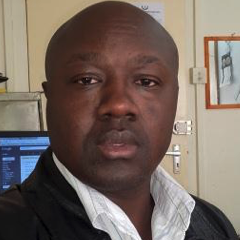
John Kiiru
Kenya Medical Research Institute (KEMRI), Nairobi
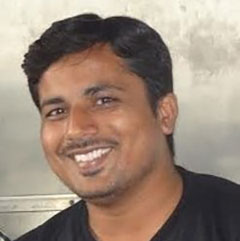
Narender Kumar
University of Cambridge, UK

Lillian Musila
University of Nairobi, Kenya

Gunturu Revathi
Aga Khan University Hospital, Kenya
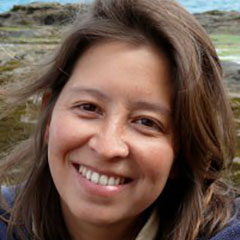
Estee Torok
University of Cambridge, UK
Teaching Assistants
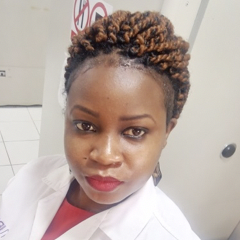
Susan Kavai
KEMRI, Kenya
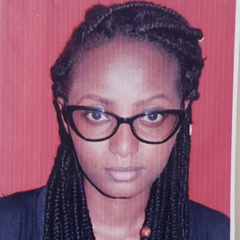
Susan Kiiru
KEMRI, Kenya
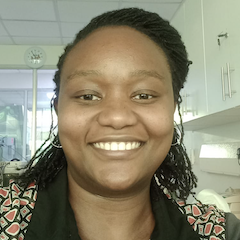
Cecilia Kyany’a
Kenya Medical Research Institute

Catherine Ludden
COVID-19 Genomics UK Consortium (COG-UK)
How to apply
Prerequisites
Applicants should be Ph.D. students, clinical trainees or specialists in medical microbiology, postdoctoral scientists, senior technicians, or research assistants with a Master’s degree. Applicants should be based in Africa and be actively engaged in, or soon to commence, research, clinical practice, provision of clinical services or policy development related to AMR in bacteria. Applicants should have basic training in standard microbiology laboratory techniques such as pipetting, handling of biological samples, aseptic technique and streaking.
Laboratory experience: The practical laboratory sessions will require basic microbiological and laboratory skills. Applicants should have basic training in standard microbiology laboratory techniques such as pipetting, handling of biological samples, aseptic technique and streaking. This experience will be essential for participants to benefit from the course fully.
Computer usage: Participants should have some basic knowledge of computer usage (e.g., use an Internet browser). No formal bioinformatics training is required.
The course will be taught in English.
How to Apply
Please click the Apply button above to begin the online application process. Places are limited and will be awarded on merit. If you have any problems with the online application process, please contact us.
Please note: Applications must be supported by a recommendation from a scientific or clinical sponsor (e.g. supervisor, line manager or head of department). A request for a supporting statement will be sent to your nominated sponsor automatically during the application process. Applicants must ensure that their sponsor provides this supporting statement by the application deadline. Applications without a supporting statement cannot be considered.
Cost
Cost
The course is subsidised by Wellcome Genome Campus Advanced Courses and Scientific Conferences and is free to attend for non-commercial applicants. Please contact us for the commercial fee.
Bursaries
A limited number of bursaries are available for each course. These are awarded on merit to cover travel, accommodation and sustenance. The maximum award for travel (economy class) will be £750. If you would like to apply for a bursary, please complete the bursary section of the online application form.
Bursaries can be applied for as part of the course application form. Applicants will be notified of a bursary award along with their place on the course, usually within one month of the application deadline. The decision of the selection committee is final.
Please note that both the applicant and sponsor are required to provide a justification for the bursary as part of the application. Priority will be given to applicants from low- and middle-income countries.
Accommodation services phishing scam – please be vigilant. More information.
Testimonials
Feedback from the 2019 course (Vietnam)
“This course is the best course I have attended to understand the problem of AMR. I appreciate all the lecturers and the team of the course. I have learned a lot and got some inspiration to carry on my research.“
“The instructors and other staff are very nice. The course manual contents are very clear and self explanatory.”
“It was an amazing experience. I have learned a great deal throughout this course.”
“I am a first-year PhD student in the field of AMR. I am very lucky to have attended this course which covered most of my current project.”
